Hair extensions have become increasingly popular as a means to achieve voluminous locks and experiment with different hairstyles. While these extensions can be a game-changer in transforming your appearance, concerns about potential damage to natural hair often arise. Are extensions bad for your hair?
In this post, Jen Hair will delve into the subject of hair extensions and explore ways to minimize any potential damage they may cause.
By understanding different types of hair extensions and their influences to your hair, you can enjoy the benefits of extensions while keeping your hair healthy and vibrant. Continue reading!
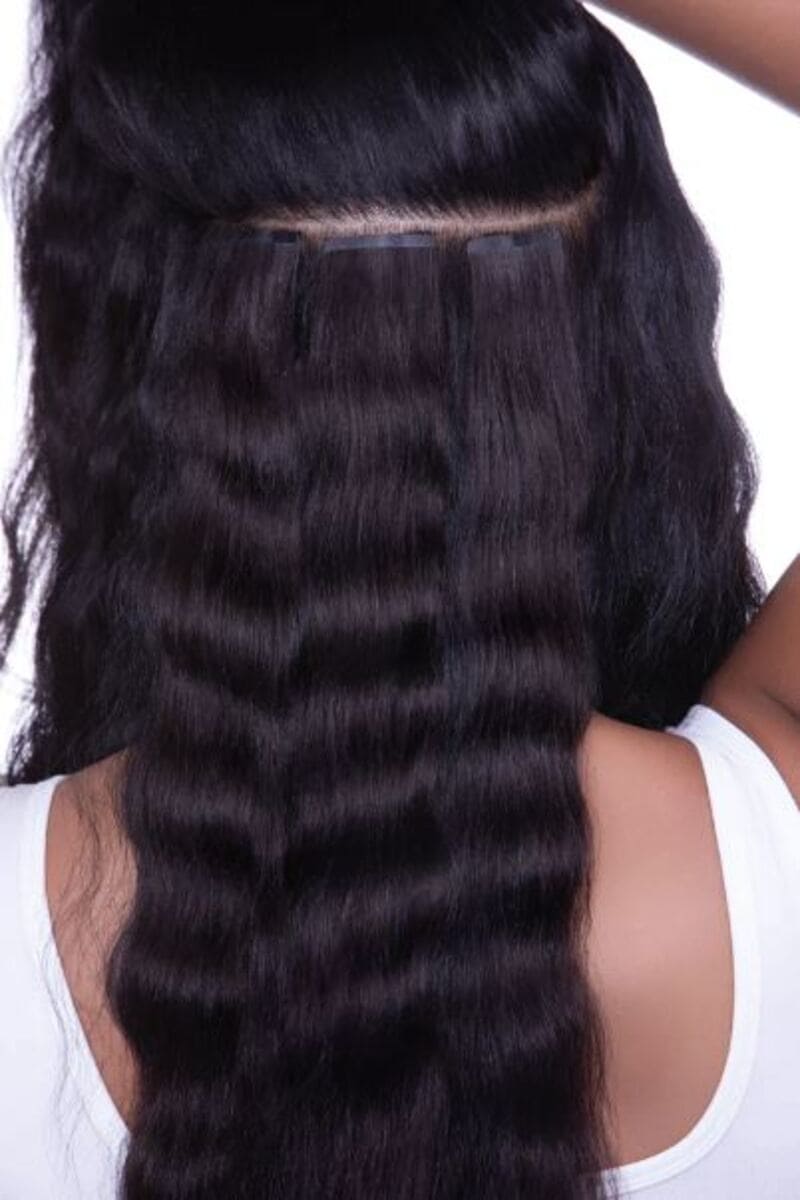
Are extensions bad for your hair?
Hair extensions, in the majority of cases, do cause damage to the hair. However, the good news is that not all types of extensions have the same effects. With numerous options available, featuring varying attachment methods and duration of use, it becomes vital to assess the severity of damage associated with each type.
In general, permanent extensions and those with attachments tend to be the primary offenders when it comes to causing harm to your natural hair. Let’s delve deeper into the different types of extensions and their effects to the hair.
Do tape-in extensions damage for your hair?
These extensions stick to your hair using a thin layer of medical-grade glue. It creates a sandwich-like effect above and below your natural hair strands. It is better to have a professional install and remove them, but if you are skilled with extensions and have enough time, you can try doing it yourself.
The damage from tape extensions primarily comes from their adhesive technique. A strong glue, often made of polyurethane, covers a large area near the roots to hold a weft on each side of your hair. These glued sandwiches are meant to stay in place for weeks to months. At the same time, tape-in hair extensions have improved over time.
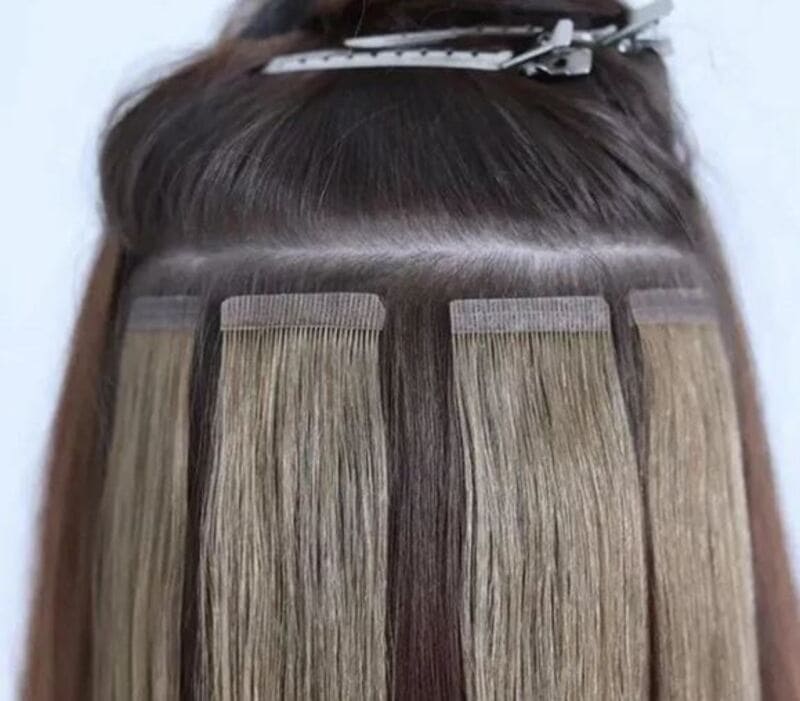
Do clip in extensions affect negatively your hair?
Clip-ins are temporary extensions that attach to the roots of your natural hair using metal or strong plastic clips. You can easily place them at home without needing professional help. These extensions are applied in small sections wherever you want to add length or volume.
While clip-in extensions are not as damaging as other types, they can still cause some harm.
Compared to non-adhesive extensions like halos, clip-ins are gentler but still harsher than weaves and fusions. Since they are a temporary option, they do not add months of weight to your hair follicles. However, many clip-in users tend to wear them frequently.
Are hand-tied extensions bad for your natural hair?
With hand-tied extensions, wefts of hair are attached to your natural hair using a hand-sewn wefting technique. Hand-tied extensions are excellent to add length and volume to your hair.
The weight of the extensions and the tension from the hand-sewn wefts can put strain on your natural hair, leading to breakage or hair loss. It is crucial to have hand-tied extensions installed and maintained by a skilled professional who can ensure proper placement and minimize the risk of damage.
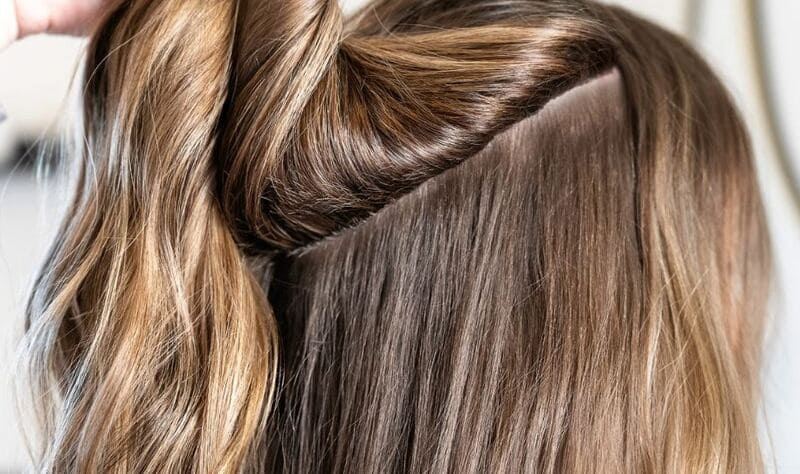
How do sew in extensions impact your hair?
Sew-in extensions, also known as weave extensions, involve braiding your natural hair and then sewing the extensions onto the braids using a needle and thread. This long-lasting and secure option can be damaging to your hair if not installed and maintained properly.
The tight braiding and the weight of the sewn-in extensions can cause tension and stress on your natural hair, potentially leading to hair breakage, thinning, or even traction alopecia.
Are bead/weft extensions bad for your hair?
Bead/weft extensions are made from human hair, and they involve threading small sections of natural hair through beads and then attaching the hair weft to the bead using a specialized clamp. The beads are placed as close to the root as possible, typically in small bundles of strands.
Like other extensions, the weight of the extensions, especially if not properly distributed, can put strain on the natural hair and follicles. The attachment process may also cause tension and pulling on the hair, leading to breakage or hair loss.
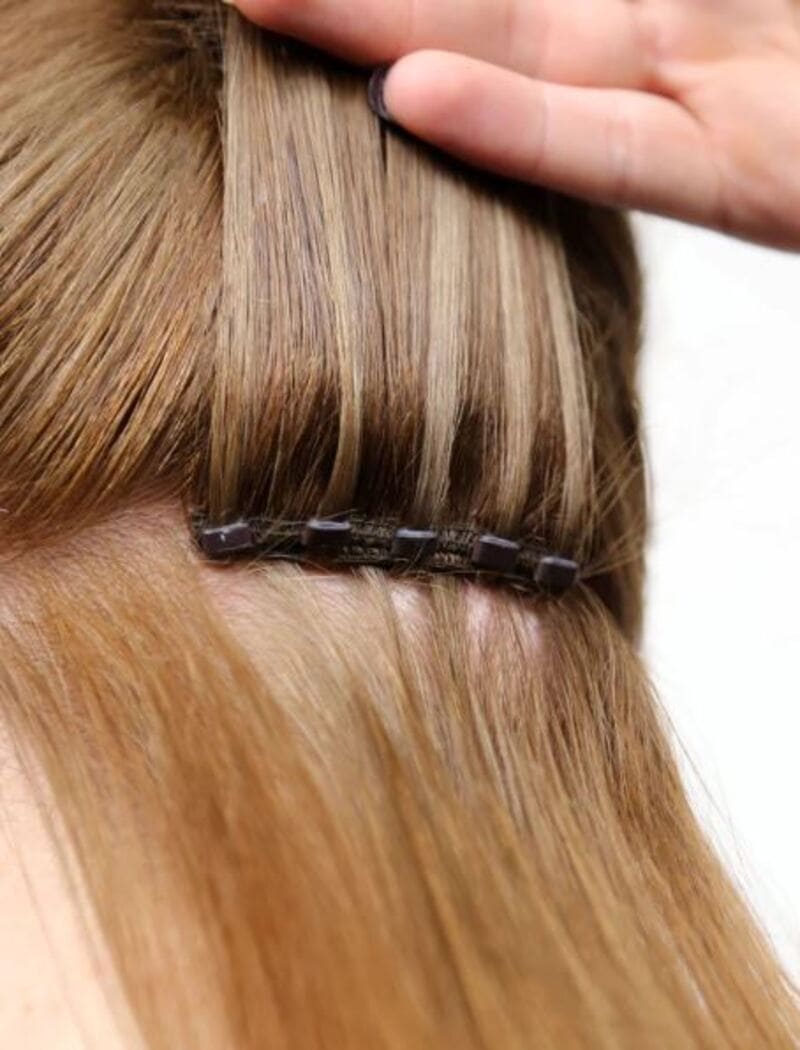
Are nano extensions good for your hair?
Nano extensions relate to individual strands of hair attached using tiny nano rings or beads. While nano extensions can provide a discreet and natural-looking result, they can potentially be damaging to your hair if not applied and maintained correctly.
The small size of the nano rings or beads means that more tension is concentrated on the individual strands of hair, which can lead to breakage or damage if the extensions are too heavy. It is essential to have nano extensions applied by an experienced professional who can ensure the correct weight distribution.
Are Keratin extensions better for your hair?
Keratin extensions are a type of permanent extension. Each hairpiece has pre-installed glue at the tip, which is used to attach it to your own hair. These extensions are placed strand-by-strand using a heated tool that fuses the extension to your natural hair.
The adhesive used in keratin extensions and the application process involving heat can cause stress and strain on your natural hair. Improper installation or removal techniques can lead to hair breakage, thinning, or even scalp irritation.
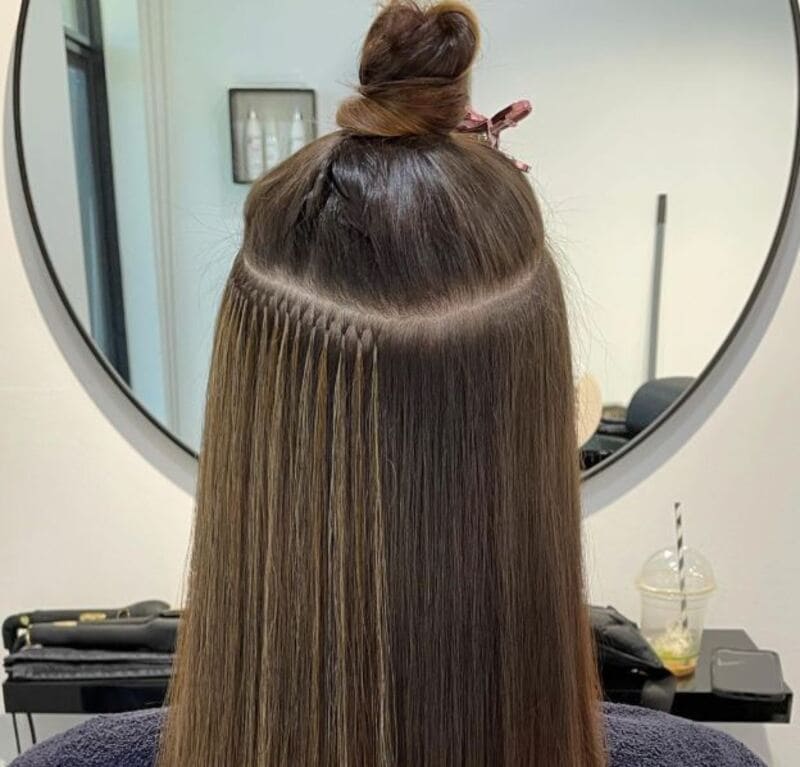
Are tip extensions bad for your hair?
Tip extensions, also known as fusion or pre-bonded extensions, involve attaching individual strands of hair to your natural hair using a specialized adhesive or keratin bond at the tip.
Are extensions bad for your hair? The adhesive used and the heat required to fuse the extensions can put stress on your natural hair, leading to breakage or damage if the installation or removal process is done incorrectly.
Are dread extensions bad for your hair?
Also known as dreadlock extensions or synthetic dreadlocks, dread extensions involve attaching pre-made or synthetic dreadlocks to your natural hair using braiding, crocheting, or backcombing.
If not installed and maintained correctly, the weight of the extensions and the tension from the attachment methods can put strain on your natural hair, leading to breakage or hair loss.
Are halo extensions more beneficial for your hair?
Halo hair extensions are temporary hair extensions that can be easily placed and removed according to your preference. Instead of attaching to your hair, they sit around your head using a comfortable and discreet headband. You can place them at home within seconds, without the need for professional help.
Unlike other types of hair extensions that can cause damage by pulling or tangling your natural hair, halo extensions do not attach directly to your strands. Therefore, there is no risk of pulling, matting, or damage from harsh adhesives.
This is why halo hair extensions are specifically designed for thin hair types. They are crafted to add volume, length, and a healthy fullness to your hair without compromising the precious strand count of your own hair.
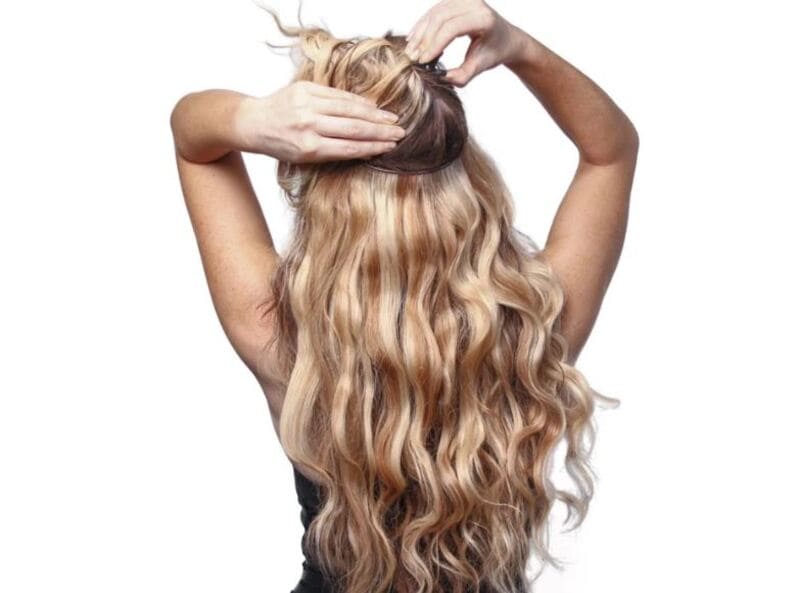
Are braid extensions bad for your hair?
Braid extensions involve adding synthetic or human hair to your natural hair using braiding techniques. While braid extensions can be a versatile and protective hairstyle, they can potentially cause damage to your hair if not installed and maintained properly.
Can wearing extensions result in hair loss?
Extensions have the potential to cause hair loss if not installed, maintained, or removed properly. Improper installation techniques, excessive tension, or wearing extensions for extended periods can lead to traction alopecia, a type of hair loss caused by continuous pulling and tension on the hair follicles.
Additionally, some adhesive-based extensions or methods that involve excessive heat can weaken the hair shaft and contribute to breakage or hair loss.
It is essential to choose a reputable and experienced professional for extension application and follow proper care instructions to minimize the risk of hair loss.
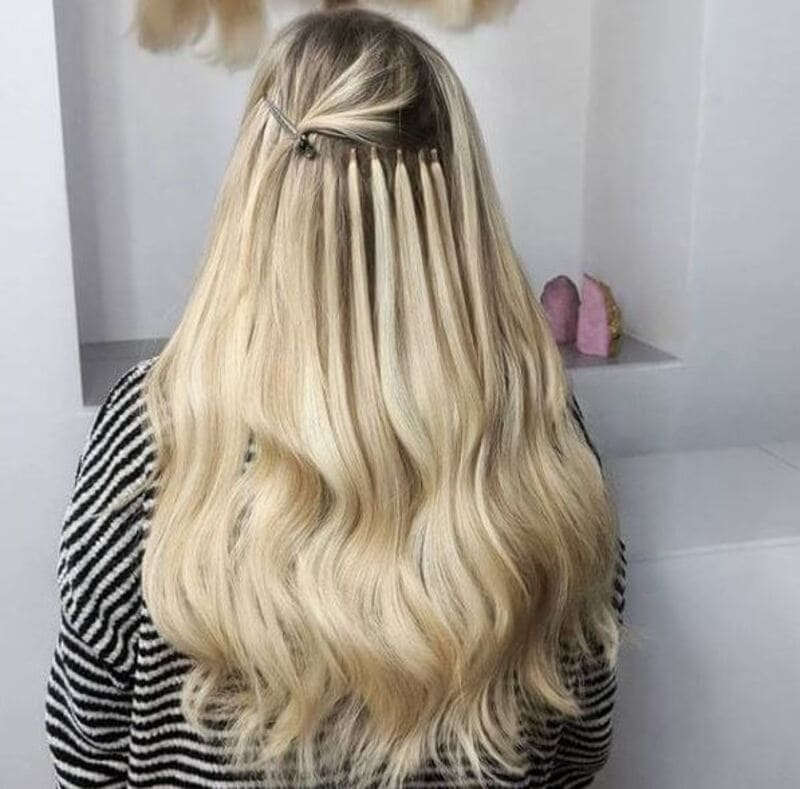
What is the hair extension that causes the least damage?
The least damaging hair extension method varies depending on individual hair type, condition, and personal preferences. However, generally, non-attachment methods such as clip-in extensions or halo extensions are considered less damaging. These extensions can be easily applied and removed without any adhesive or heat to minimize the risk of hair damage.
Additionally, extensions made from high-quality human hair that closely matches your natural hair texture can also help reduce damage.
Finally, if you have thin or weak hair, it is advisable to choose non-attaching hair extensions to minimize damage. When extensions are attached near the roots, they can cause significant damage to the most vital part of your hair, the follicle.
Can your hair grow healthy with extensions?
With proper installation, maintenance, and care, it is totally possible for your hair to grow healthy while wearing extensions. Extensions can provide protective styling, shielding your natural hair from environmental damage and manipulation, which promotes healthy hair growth.
However, it is crucial to ensure that the extensions are not too heavy or causing excessive tension on your natural hair. Regular maintenance, including proper cleansing, moisturizing, and gentle handling of both your natural hair and the extensions, is essential to maintain hair health.
Additionally, giving your hair breaks from extensions and following a balanced diet and good hair care practices can contribute to healthy hair growth while wearing extensions.
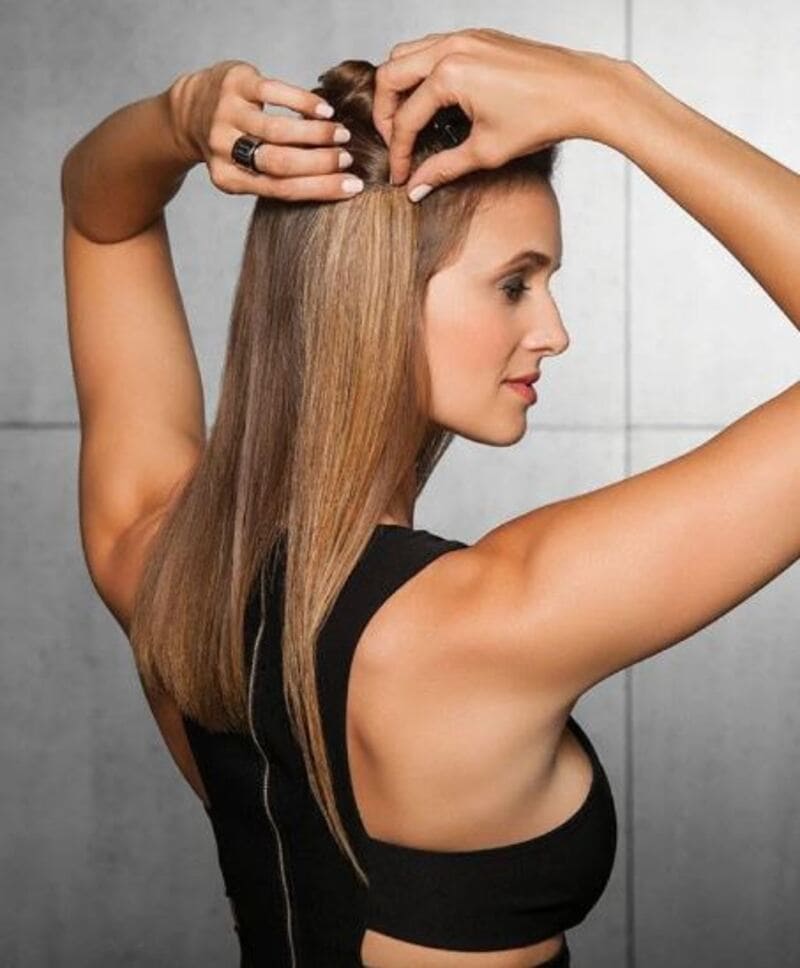
Following are more detailed solution for your hair with extensions!
How can you minimize admage from extensions?
Are extensions bad for your hair? Now, it’s time to equip yourself with practical methods to prevent damage from extensions.
Maintenance appointments
As our top hair extension tip, it would always be to prioritize your maintenance appointments. These sessions with your technician are crucial to keep your extensions in a healthy condition, maximize their lifespan, and prevent damage to your hair follicles.
During your maintenance appointment, your technician will examine your scalp, hair, and extensions to check for any signs of matting or tangles. They will ensure that your natural hair continues to grow properly and assess whether an uplift is necessary.
An uplift simply involves readjusting the rings or attachments to their original position, which is needed if your hair grows faster than the average rate.
Wash your extensions
It is crucial to follow the correct washing routine for your extensions. Always make sure to use the hair care products recommended by your professionals.
When it comes to the actual washing process, here are a few quick tips to achieve the best results:
- Use a specialized hair extension shampoo on your entire head, including the roots.
- When it comes to conditioner, apply it only to the mid-lengths and ends of your hair. Applying conditioner to the roots can cause your extensions to slip or become loose.
- If possible, wash your hair while in the shower to allow the water to flow down the hair in its natural growth direction. Although it seems more convenient to flip your hair over the bath for washing, doing so increases the likelihood of tangling.
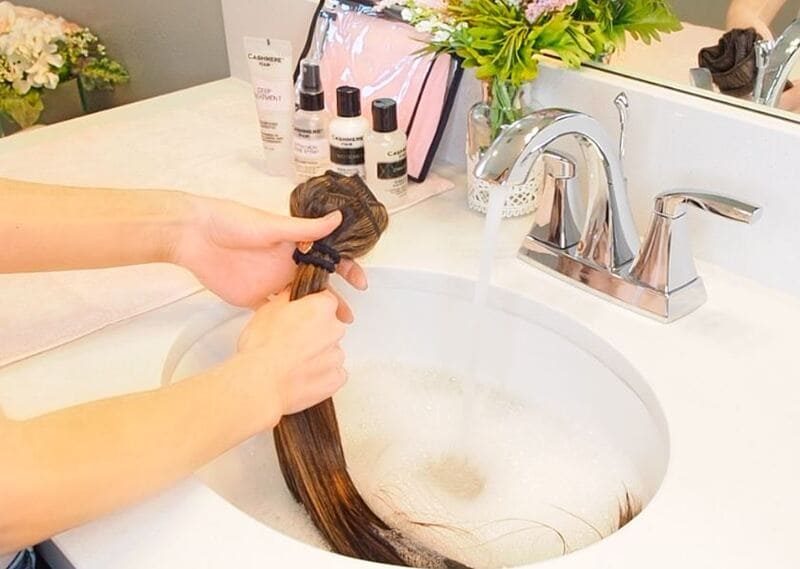
Be gentle when brushing
One of the biggest causes of damage is rough brushing. Your extensions are attached to your natural hair at the roots, so pulling and tugging can hurt and shorten their lifespan.
Take the time, even on busy mornings, to brush your hair gently. Start from the bottom and work your way up, being careful not to pull too hard. This effort will help keep your extensions healthy and last longer.
Dry your hair thoroughly after washing
Sleeping with wet or damp hair while wearing extensions should always be avoided. This habit can lead to tangling starting from the root and can also put your natural hair at risk of damage.
Wet hair is more fragile, and as you move during sleep, it can become brittle and prone to breakage. To prevent this, allow yourself some extra time to thoroughly dry your hair before going to bed.
Switch to a silk pillowcase
If you have not, seriously consider making the change. Replace your cotton pillowcase with a luxurious silk one to eliminate hair-damaging friction and splitting while you sleep. Make sure to choose a pillowcase made of genuine silk, like the ones woven with 100% charmeuse silk, and avoid satin alternatives.
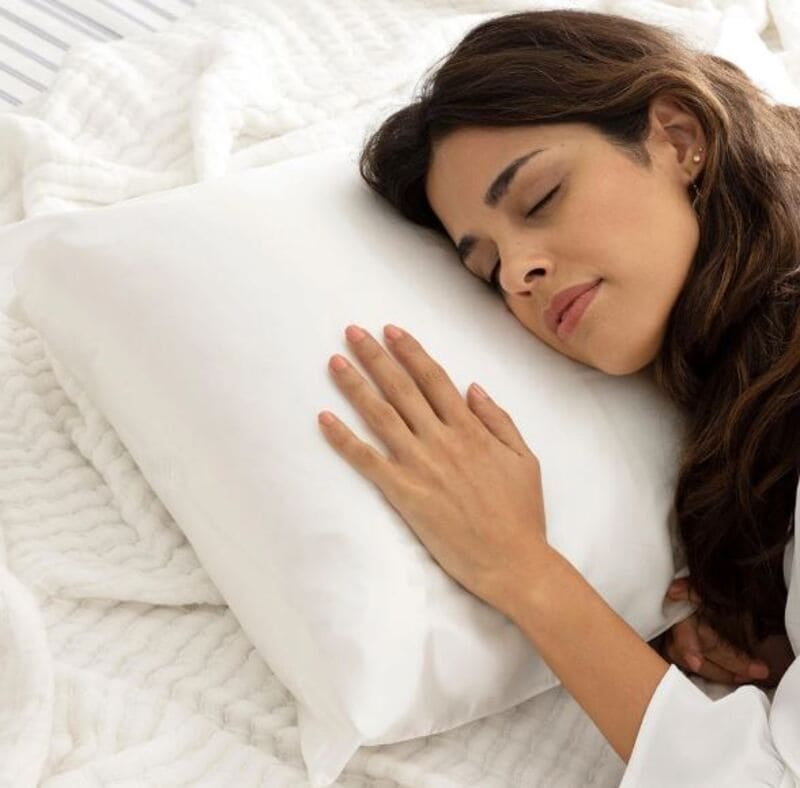
Nourish hair from its inside
Including biotin, zinc, and maintaining a balanced diet is essential not only for hair and skin health but also for overall well-being. You will receive positive results by incorporating biotin supplements into their routine. Biotin has been found to significantly enhance the strength and health of hair, nails, and skin. By nourishing the body with these vital nutrients, individuals can promote healthy hair growth and enjoy a range of other health benefits as well.
Avoid traditional elastics
Bid farewell to those snagging and stretchy elastics that can wreak havoc on your hair. As someone who has been a ponytail enthusiast since pre-school, you will understand the appeal of a sleek and tight pony. However, it is important to be aware of the potential risks of traction alopecia and hair fall.
By switching to smoother elastic alternatives, you can reduce hair loss because they glide out more gently and provide a looser hold.
Use a heat protector
Using a heat protector is an absolute must, even for minor blowout touch-ups. There are various options available, including shampoos, leave-in conditioners, oils, and more, in addition to the traditional sprays.
Find a heat protectant that suits your preferences and make it a regular part of your hair care routine. Consistently using a heat protectant will help safeguard your hair from damage and preserve its health.
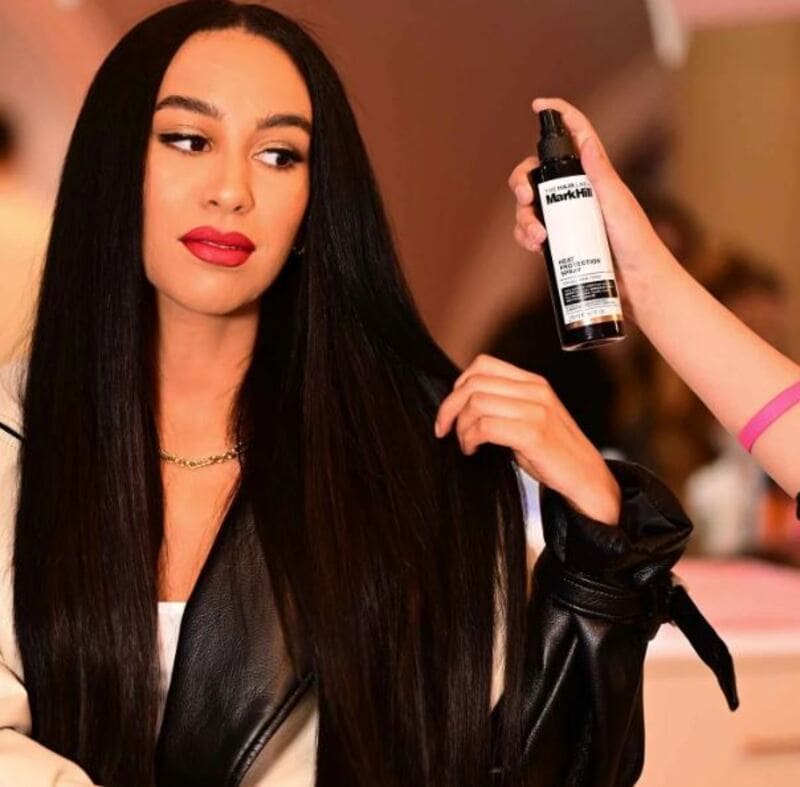
Summing up
Are extensions bad for your hair? While there is a potential for hair damage with extensions, there are effective ways to minimize the risks. By following hair care tips and a balanced diet, you can maintain the health of both your extensions and natural hair.
If you are in need of high-quality hair extensions, reach out to Jen Hair for expertise and reliable products. With the right knowledge and practices, you can enjoy the benefits of extensions while keeping your hair in excellent condition!
Recommendations:
- What Are The Most Luxury Hair Extensions In The Market?
- [Hot] Invisible hair extensions for thin hair
- How much does it cost for hair extensions?
- 25+ Most Attractive Hairstyles For Weave Extensions In 2024
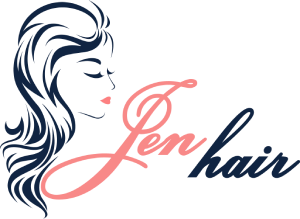
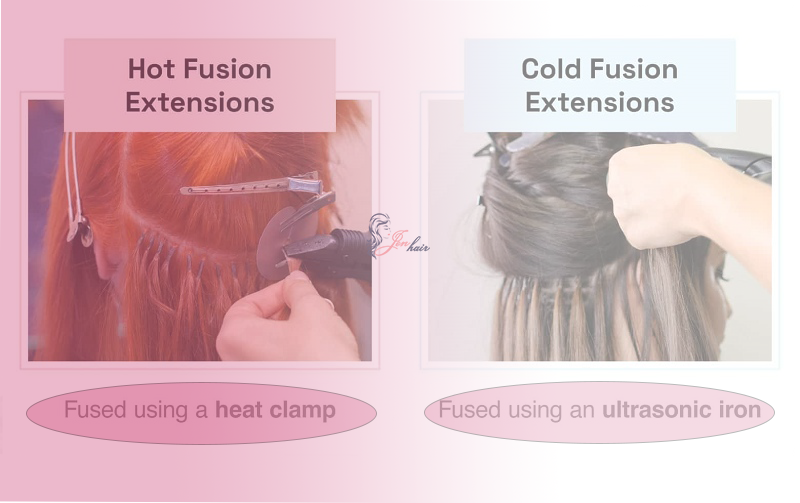 All-in-one Guide about Cold Fusion Hair Extensions in 2024
All-in-one Guide about Cold Fusion Hair Extensions in 2024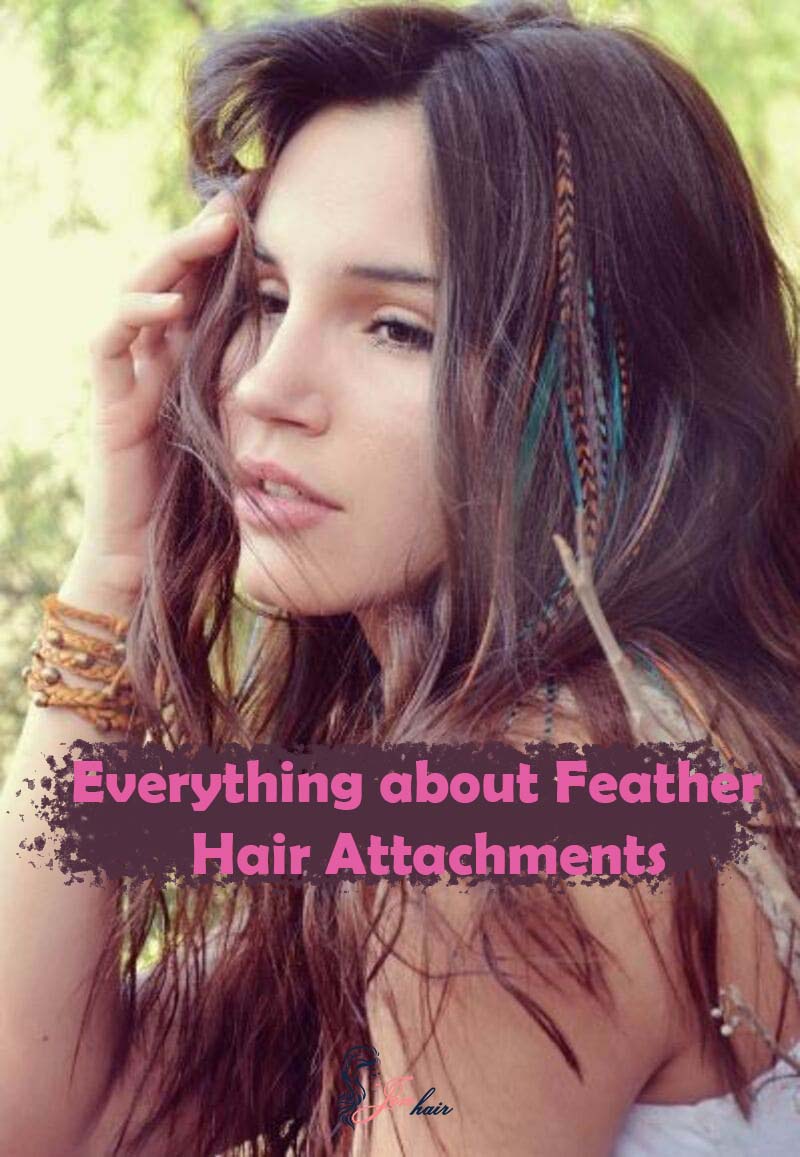 Everything about Feather Hair Attachments
Everything about Feather Hair Attachments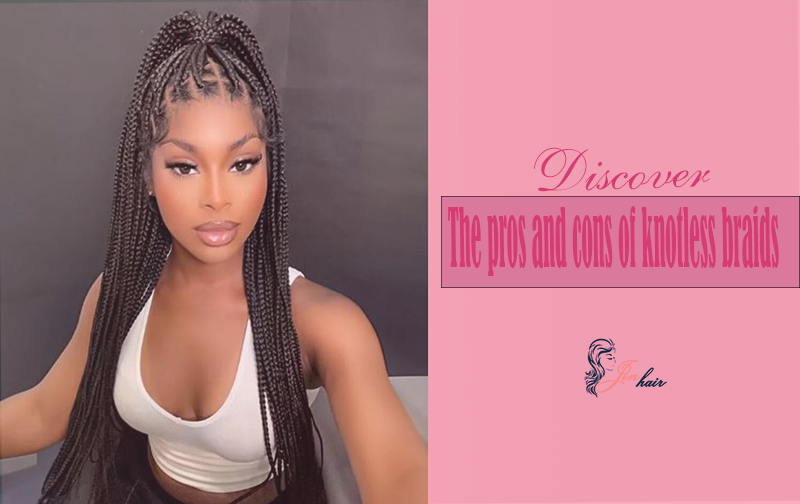 Discover the pros and cons of knotless braids
Discover the pros and cons of knotless braids